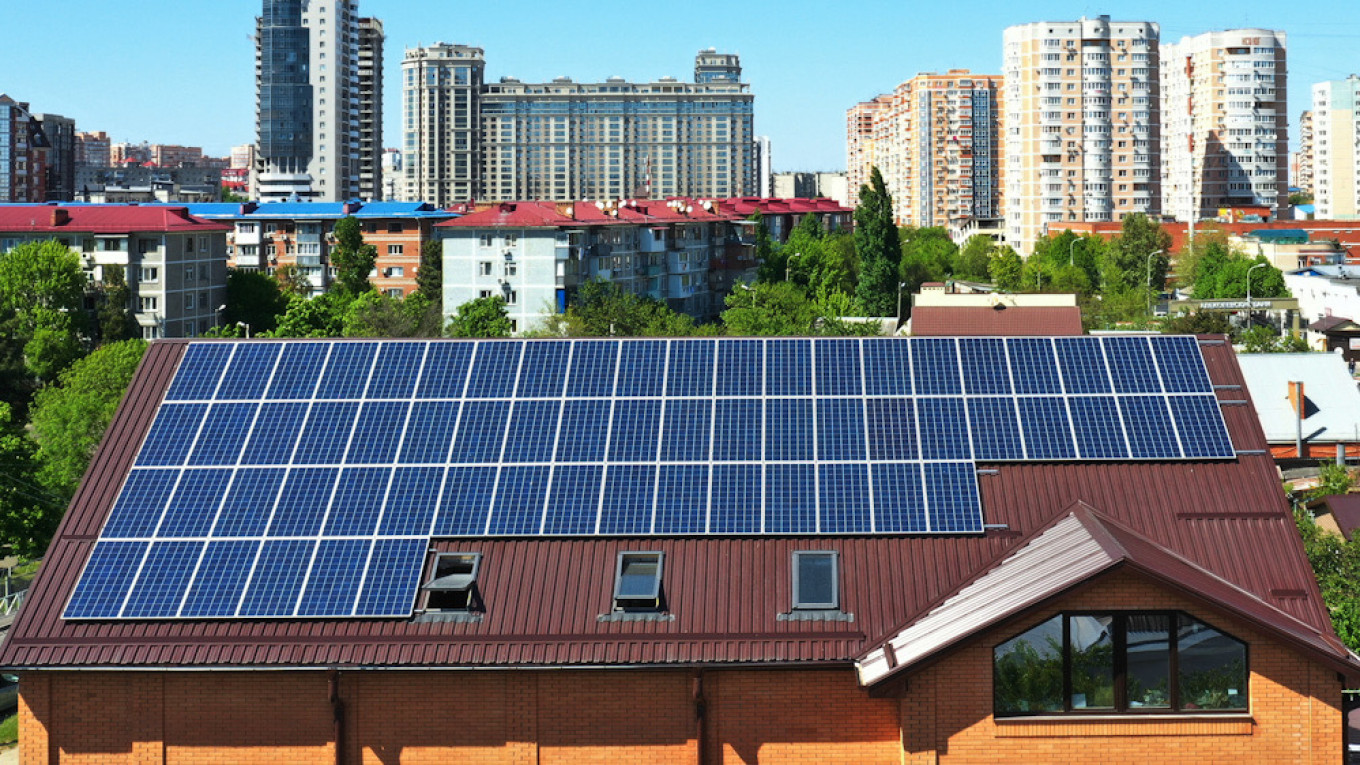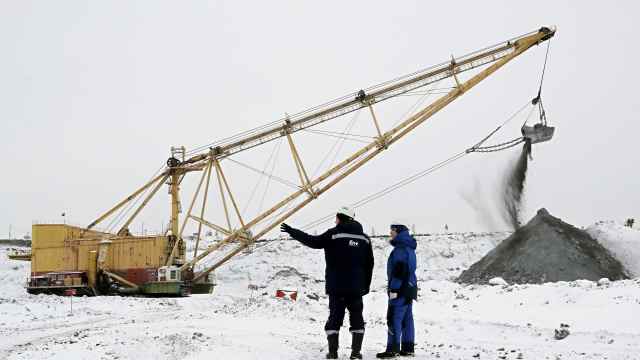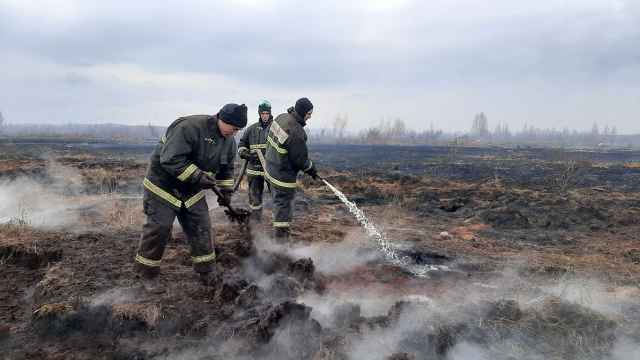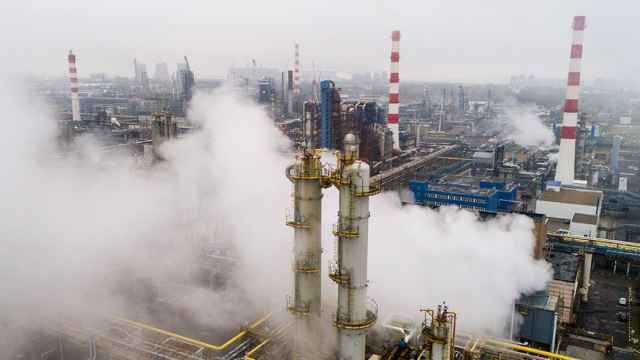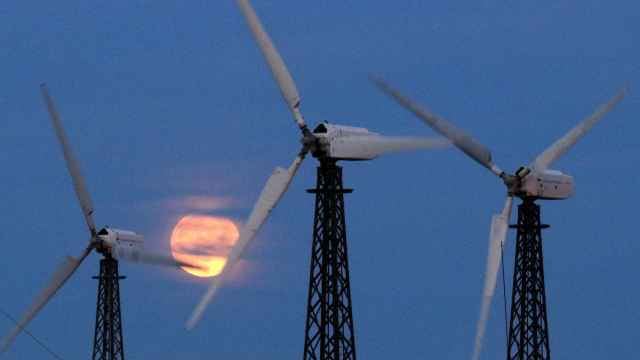The head of the International Monetary Fund (IMF) has warned Russia’s business and political elite not to underestimate the challenges the global green energy transition will present for the country, as a leading government minister blasted the EU’s green energy plans as “protectionist.”
“We will see a very significant structural transformation, related to the world finally getting serious about the global climate crisis,” IMF Managing Director Kristalina Georgieva said Thursday at the St. Petersburg International Economic Forum (SPIEF), in a panel alongside Russia’s Finance Minister, Central Bank chief and other key economic policymakers.
A poll of attendees at SPIEF — dubbed “Russia’s Davos,” and attended by the country’s leading business and political figures — found only 4% saw the global energy transition as the biggest challenge facing the Russian economy coming out of the coronavirus pandemic.
Georgieva, speaking via video link, said Russia “might be underestimating the significance of what is going on.”
“For an economy that has a significant fossil fuel component, what is going on has to be a concern,” she added.
“The world is moving to carbon pricing. Some 23% of global emissions will be covered by carbon pricing this year. We still have a long way to go, but during the pandemic many jurisdictions moved to taxing or pricing carbon.”
Many advanced economies have put massive support for renewable energy and the green transition at the heart of their post-pandemic economic recovery packages, with both the EU and U.S. set to introduce carbon border taxes — a levy charged on businesses based on the emissions produced in the products they import.
The EU’s carbon border tax alone could affect more than 40% of Russian exports, the Central Bank has calculated. The country’s leading business lobby has estimated the cost to Russian firms at $50 billion over the next decade.
Critics and environmentalists say Russia has been slow to acknowledge the dangers of climate change and has not caught on to how fast economies around the world are starting to address the problem.
Russia is the world’s fourth-largest emitter of greenhouse gases, while ranking 9th for population and 11th in terms of the size of its economy.
Economy Minister Maxim Reshetnikov responded to Georgieva by criticizing the EU’s plans to introduce a carbon border tax.
“The EU’s measures look a little bit protectionist — and they’re trying to cover themselves under the green agenda,” he told the SPIEF audience Thursday.
“The climate agenda is only one of 17 global sustainability targets, we also have the objective of fighting poverty, for instance — and not all the countries are willing to share that responsibility,” he added.
Russia is set to pass a law — under consideration since 2017 — limiting the country’s carbon emissions, although the country has been criticized for picking a baseline emissions target so high it requires almost no progress to be met.
In an address to SPIEF, World Bank President David Malpass also pressed Russia to advance its efforts to address climate change.
“For Russia, it will be important to achieve dramatic improvements in energy efficiency, reduced use of coal, manufacturing that is less carbon intensive, and land use practices that improve the efficiency of fertilizer and reduce the pollution of rivers and oceans,” he said.
Both the World Bank and IMF also said Russia should look at the green energy transition as an opportunity to create a new competitive, domestic industry which can eventually replace the country’s heavyweight fossil fuel majors.
Russia has a huge opportunity in hydrogen that should not be missed. I would urge policymakers to think about the world in 2030, how the world is going to change, and how Russia can take advantage of this change,” said Georgieva.
Malpass added: “With its strengths in science and engineering, Russia could make important contributions to technological innovation and manufacturing capacity to support lower-carbon, net-zero development in Russia and around the world.”
A Message from The Moscow Times:
Dear readers,
We are facing unprecedented challenges. Russia's Prosecutor General's Office has designated The Moscow Times as an "undesirable" organization, criminalizing our work and putting our staff at risk of prosecution. This follows our earlier unjust labeling as a "foreign agent."
These actions are direct attempts to silence independent journalism in Russia. The authorities claim our work "discredits the decisions of the Russian leadership." We see things differently: we strive to provide accurate, unbiased reporting on Russia.
We, the journalists of The Moscow Times, refuse to be silenced. But to continue our work, we need your help.
Your support, no matter how small, makes a world of difference. If you can, please support us monthly starting from just $2. It's quick to set up, and every contribution makes a significant impact.
By supporting The Moscow Times, you're defending open, independent journalism in the face of repression. Thank you for standing with us.
Remind me later.


